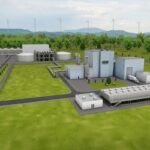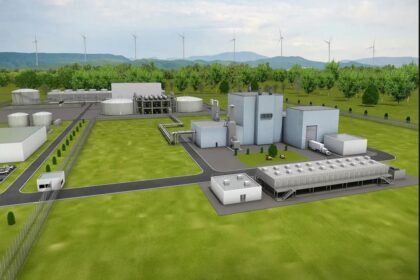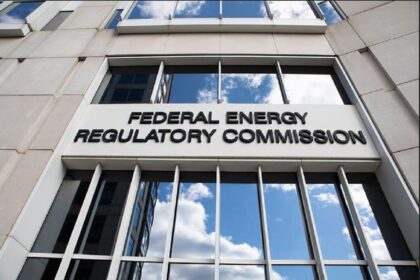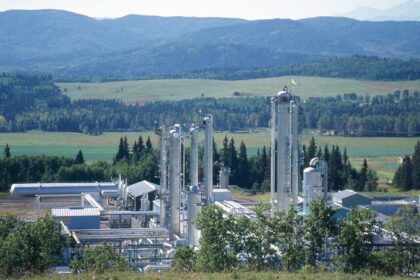Rising Energy Demands from Data Centers Prompt Action
On his first day in office, newly inaugurated US President Donald Trump declared a “national energy emergency,” citing the soaring energy demands from data centers as a major factor behind the decision. According to estimates from the Department of Energy, data centers are expected to account for between 6.7% and 12% of total US electricity consumption by 2028. This surge in energy consumption, driven by the expansion of digital infrastructure, has prompted the administration to introduce a range of measures aimed at ramping up fossil fuel production and accelerating approval for new energy projects.
Policy Shifts and Support for Fossil Fuel Development
In his inaugural address, Trump wasted no time in taking action to support the fossil fuel industry. One of the first steps he took was signing executive orders to promote oil and gas development, particularly in Alaska. He reversed the previous administration’s decision to withdraw approximately 44 million acres of the Northern Bering Sea and other federal offshore areas from the Department of the Interior’s oil and gas leasing program.
Additionally, President Trump suspended targets for electric vehicle adoption, effectively slowing the transition to cleaner energy alternatives. He also took action to halt wind energy leasing on the US Outer Continental Shelf, with a directive to review the federal government’s permitting and leasing practices for wind projects.
Rejoining the Fossil Fuel Narrative: Trump’s Support for Oil and Gas
Trump’s administration signaled a strong backing for the fossil fuel sector, with an emphasis on restoring the US to its status as an energy leader. During his speech, the President stated, “America will be a manufacturing nation once again, and we have something that no other manufacturing nation will ever have: the largest amount of oil and gas of any country on Earth.”
The President also took the controversial step of withdrawing the US from the Paris Climate Agreement, reigniting the climate policy debate that marked much of his first term. Environmental advocates strongly criticized the move, arguing that it would harm workers and the environment.
The Impact on Data Center Energy Procurement Strategies
Trump’s energy policies could have far-reaching implications for data centers, which are already significant consumers of energy. Over the past year, many data center companies, both large and small, have signed natural gas supply agreements to meet their growing energy needs. The administration’s focus on fossil fuels could further incentivize such partnerships.
For example, Meta’s $10 billion data center in Louisiana will be powered by a combination of natural gas turbines, with a total capacity of 2.26GW. Similarly, smaller AI-focused data centers in Texas have secured off-grid natural gas supplies, ensuring reliable energy sources as they expand.
ExxonMobil’s Role in the Evolving Data Center Energy Landscape
Oil and gas giants, like ExxonMobil, are increasingly targeting the data center sector as a key growth area. In late 2024, ExxonMobil revealed plans to build a 1.5GW natural gas-fired power plant specifically for data center operations. This move highlights the growing intersection of the energy and technology sectors, with fossil fuel companies positioning themselves to meet the future needs of the data-driven economy.
FAQs About Trump’s National Energy Emergency and Data Centers
Q1: What is the “national energy emergency” declared by Trump?
Trump declared a national energy emergency to support the fossil fuel sector, citing the increasing energy demand from data centers as a key factor. This declaration allows for the fast-tracking of fossil fuel projects and the rollback of environmental protections.
Q2: How much energy do data centers use in the US?
Data centers are projected to consume between 6.7% and 12% of the total electricity used in the US by 2028, according to the Department of Energy.
Q3: How are data centers adjusting to the rising demand for energy?
Many data centers are signing agreements to secure natural gas supplies, with some even building dedicated power plants to ensure energy reliability for their operations.
Q4: How does Trump’s energy policy affect the data center industry?
Trump’s energy policies, especially those favoring fossil fuels, could lead to greater investment in natural gas infrastructure for data centers, potentially lowering energy costs and improving supply reliability for data-driven industries.
Q5: Why did Trump withdraw from the Paris Climate Agreement again?
Trump’s withdrawal from the Paris Climate Agreement is part of his broader strategy to promote fossil fuel development and reduce regulations on the energy industry. This move has sparked significant opposition from environmental groups.



















